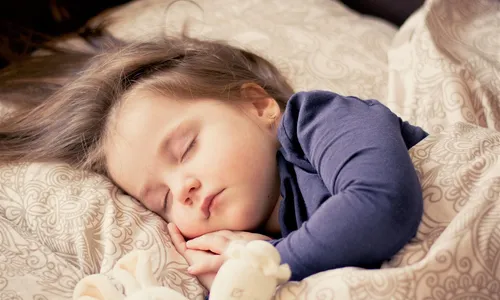Sleep Better Tonight: 5 Proven Techniques Backed by Science

You ever lie in bed staring at the ceiling, suddenly remembering that weird thing you said at your cousin’s wedding three years ago? Meanwhile, your brain's throwing a rave, and your body’s just trying to fall asleep like a normal adult. Sound familiar? You’re not alone.
According to the CDC, over 70 million Americans suffer from chronic sleep problems. That’s a lot of people doom-scrolling at 2 a.m. with one eye half-closed. The good news? Falling asleep—and staying asleep—isn’t some mystical art reserved for monks or golden retrievers. It’s science. And we’ve got five techniques backed by legit research that can help you catch better ZZZs starting tonight.
So put on your favorite pajamas, dim the lights, and let’s dive into the sleep secrets that actually work. No woo-woo. No snake oil. Just tried-and-true methods that your future well-rested self will thank you for.
1. Trick Your Brain with a Consistent Sleep Schedule
Imagine if your boss kept changing your work hours randomly every day. You’d be a walking disaster, right? Your brain feels the same way when your sleep times are all over the place. Our bodies run on circadian rhythms—a kind of internal clock that thrives on consistency.
Going to bed and waking up at the same time every day (yes, even weekends—sorry) helps regulate your sleep-wake cycle. According to a study published in the journal Sleep, people with irregular sleep schedules report poorer sleep quality and increased daytime sleepiness.
Try this: Pick a bedtime and wake-up time that works for you and stick to it. Even if you had a late night, try not to sleep in past your usual time. Your circadian rhythm will recalibrate faster, and you’ll fall asleep easier the next night.
2. Cool Your Cave: Optimize Your Bedroom Temperature
You ever notice how it’s impossible to sleep when you’re sweating like you just ran a marathon in the Sahara? That’s because your body temperature naturally drops at night to signal it’s time to snooze. If your room is too warm, it messes with that process.
The optimal sleep temperature? Around 60 to 67 degrees Fahrenheit. Research from the National Sleep Foundation confirms that cooler environments promote deeper, more restful sleep.
Try this: Turn down the thermostat, crack open a window, or invest in breathable bedding. Bonus points if you sleep with your feet poking out—turns out, cooling your feet helps regulate your core temperature faster.
3. Ditch the Devices (Yes, That Includes TikTok)
We get it—one minute you’re checking your email, the next you’re deep into a rabbit hole of “best air fryer recipes” at midnight. But screens before bed are sabotaging your sleep. Blue light emitted by phones, tablets, and TVs suppresses melatonin—the hormone that tells your body it’s sleepy time.
Studies show that people exposed to screens before bed take longer to fall asleep, experience less REM sleep, and wake up more groggy than a college student after finals week.
Try this: Establish a digital curfew. Power down all screens at least 60 minutes before bedtime. Instead, wind down with a book, light stretching, or a bath (more on that in a sec). Need tech to unwind? Use a blue light filter or try an audiobook with your screen off.
4. Master the Art of the Pre-Sleep Ritual
Ever notice how toddlers have bedtime routines that work like magic? Bath, book, bed. Adults need the same—just with less rubber duckies (or not, you do you). A consistent wind-down ritual tells your body, “Hey, it’s almost time to power down.”
One of the most underrated techniques is taking a warm bath or shower about 90 minutes before bed. This might sound counterintuitive, but it actually helps your body cool down faster afterward, priming you for sleep. Research in Sleep Medicine Reviews showed that participants who bathed before bed fell asleep 10 minutes faster on average.
Try this: Create your own “adult bedtime story” routine. Think: warm shower, herbal tea (chamomile is queen), low lights, soft music, and maybe some journaling or gratitude listing. Keep it consistent and relaxing—not another to-do list.
5. Use Mindfulness to Calm the Mental Monkey
You lay down. You’re cozy. But suddenly, your brain goes: “Hey, let’s replay that argument from 2012 in vivid detail!” Enter: racing thoughts. Meditation and mindfulness are proven tools to quiet the mental chatter.
A randomized clinical trial published in JAMA Internal Medicine found that mindfulness meditation significantly improved sleep quality in adults with moderate sleep disturbances. Why? Because it activates your parasympathetic nervous system—the “rest and digest” mode—and tells your body it’s safe to sleep.
Try this: Start with five minutes of guided meditation using an app like Headspace, Calm, or Insight Timer. Not into meditation? Try a simple body scan. Close your eyes and slowly bring awareness to each part of your body, from toes to head, while breathing deeply.
Bonus Tips for Overachievers (Or the Desperate)
- Limit late-night snacks: Especially heavy, spicy, or sugary foods. Your digestive system wants to sleep too.
- Cut caffeine after 2 p.m.: Caffeine can linger in your system for up to 10 hours. Yes, decaf might be your new bestie.
- Move your body: Regular exercise (preferably earlier in the day) helps you fall asleep faster and enjoy deeper sleep.
- Keep it dark: Your brain is super sensitive to light at night. Blackout curtains or a sleep mask can make a big difference.
Final Thoughts: Sleep Is a Skill You Can Master
Look, sleep isn’t just about rest—it’s your body’s ultimate reset button. Better sleep means better mood, focus, metabolism, immune function, memory… basically, you’re a superhero in PJs.
Don’t stress if your sleep isn’t perfect overnight (pun intended). Start with one technique, stay consistent, and stack more habits as you go. Trust the science—and yourself. The road to dreamland is closer than you think.
Now go fluff that pillow and show your bed who’s boss. Sweet dreams, friend.
FAQ
What is the best time to go to bed for optimal sleep?
Most adults benefit from going to bed between 9 p.m. and 11 p.m. This aligns with your body’s natural melatonin production. Aim for 7–9 hours of sleep per night and keep your sleep-wake times consistent.
How can I fall asleep faster?
Establish a calming bedtime routine, limit screen time, keep your bedroom cool and dark, and avoid stimulants like caffeine late in the day. Mindfulness or deep breathing exercises can also help calm your mind.
Is it bad to use my phone before bed?
Yes, it can disrupt melatonin production due to blue light exposure, making it harder to fall asleep. Try a screen curfew and use apps with blue light filters if you must check your phone late.
Does alcohol help or hurt sleep?
While alcohol might make you feel sleepy at first, it disrupts REM sleep and can cause more awakenings during the night. It’s best to limit or avoid alcohol before bed if you want high-quality sleep.
Can I catch up on sleep over the weekend?
You might feel more rested, but it won’t fully make up for chronic sleep debt. The best strategy is a regular sleep schedule every day, including weekends. Consistency is key.
Explore more blogs on health:




